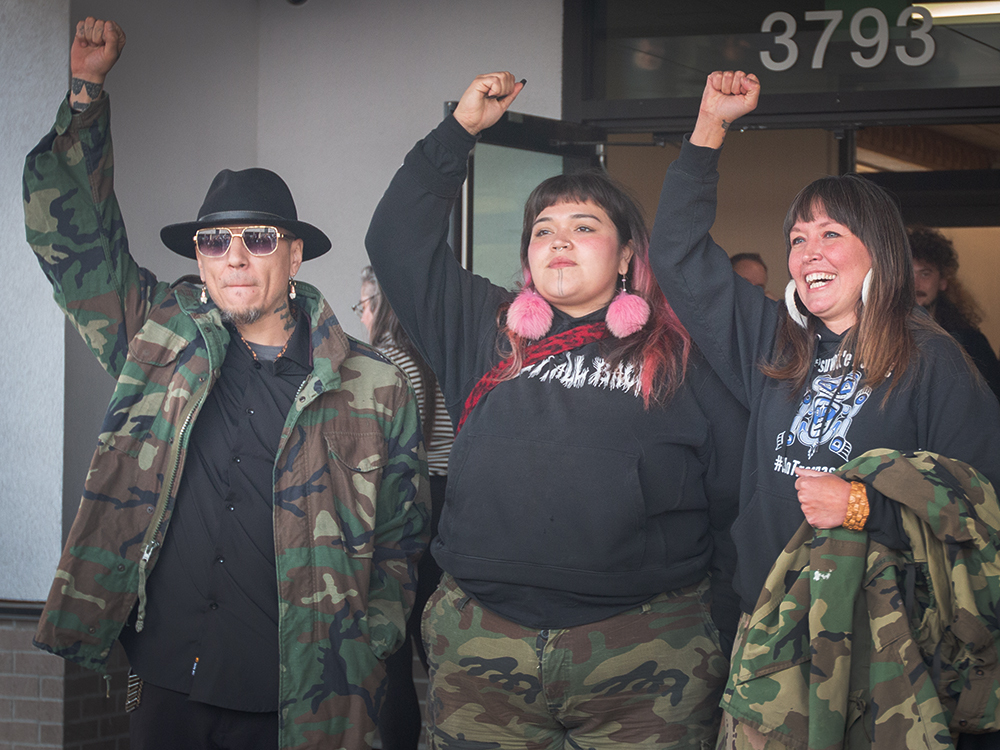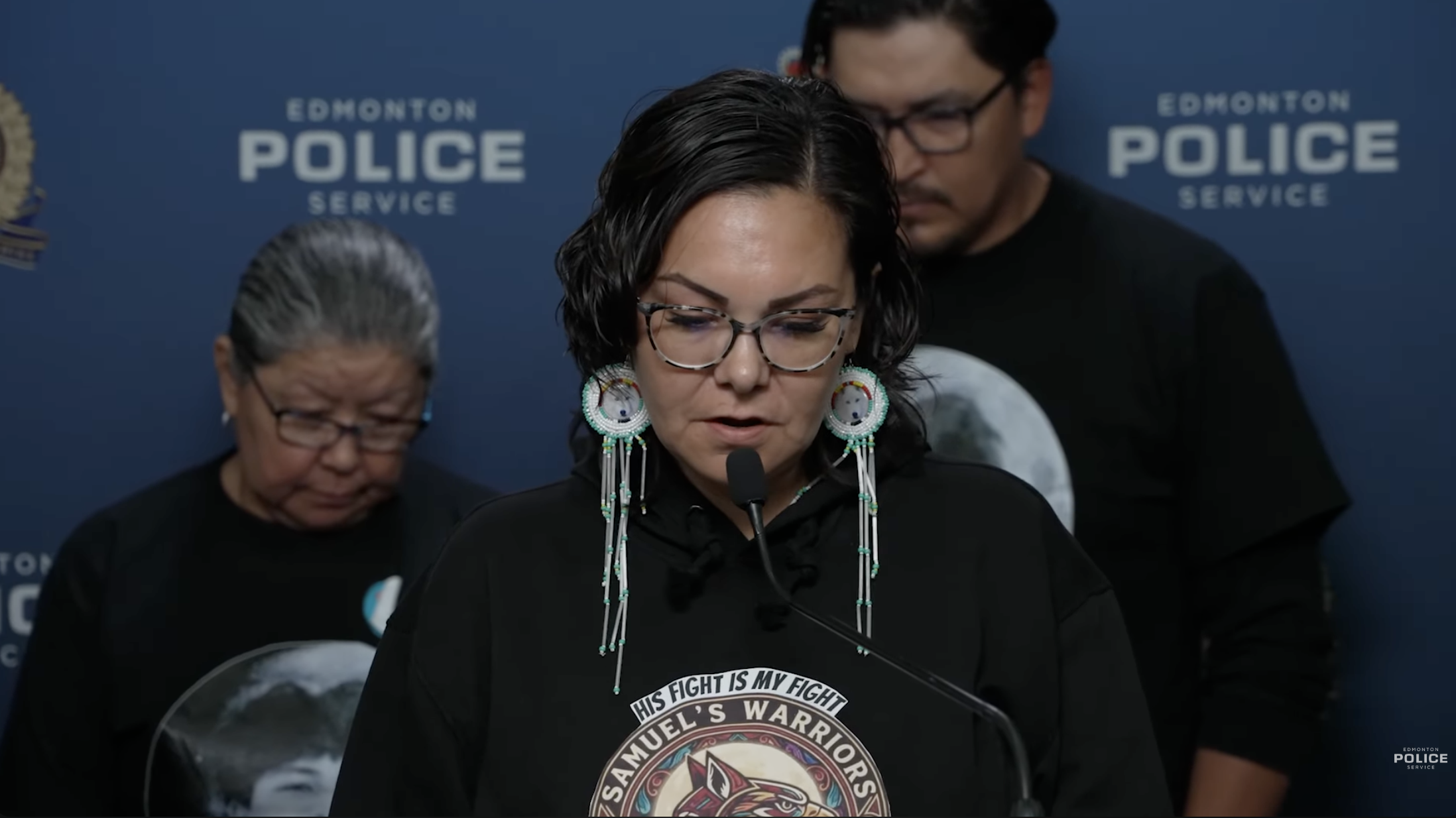Hotlatch: Queer Indigenous dance party front and centre at ‘Vancouver’ Pride festival for first time
The time of Pride events being run only by and for white gay men is over, says Dane-Zaa drag performer

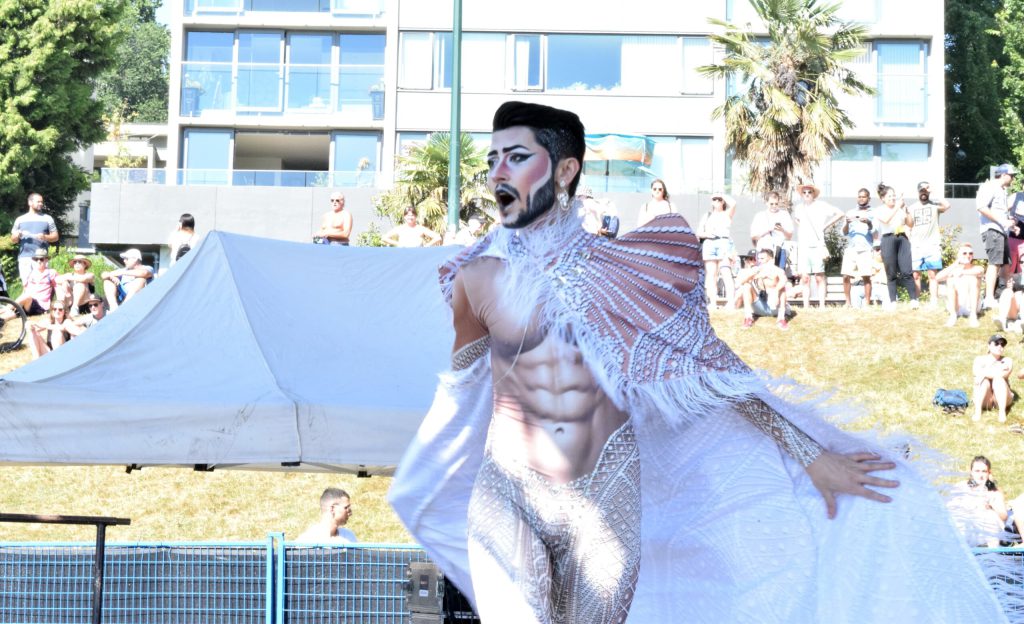
Indigenous performers were front and centre for the first time ever during “Vancouver” Pride’s Sunset Beach Festival.
Hotlatch, a group that produces queer Indigenous dance parties, curated and hosted the festival’s main stage on Sunday after the Pride parade on Musqueam, Squamish and Tsleil-Waututh territories.
The opening lineup included Indigenous DJs, dancers and drag performers, before Hotlatch headline performer Tommy Genesis, a fetish rapper of Tamil and Swedish heritage, took to the stage.
IndigiNews spoke to the organizers and several opening performers in the days leading up to the event. Each of them repeated the power and significance of the event being produced by Indigenous people, with nearly all Indigenous performers.
“We’ve all been waiting for this,” said Tristan Makadahay, whose stage name is Sha Sha, a Dane-Zaa drag performer who is part of a drag group called House of Melk-Breakfast.
The time of Pride events being run only by and for white gay men is over, said Sha Sha. They explain that in the past they have had hesitations about performing, which came from the fear that “I’m going to be the token, or the only one that’s different,” they said.
But now that has changed, Makadahay said, and “it’s beautiful.”
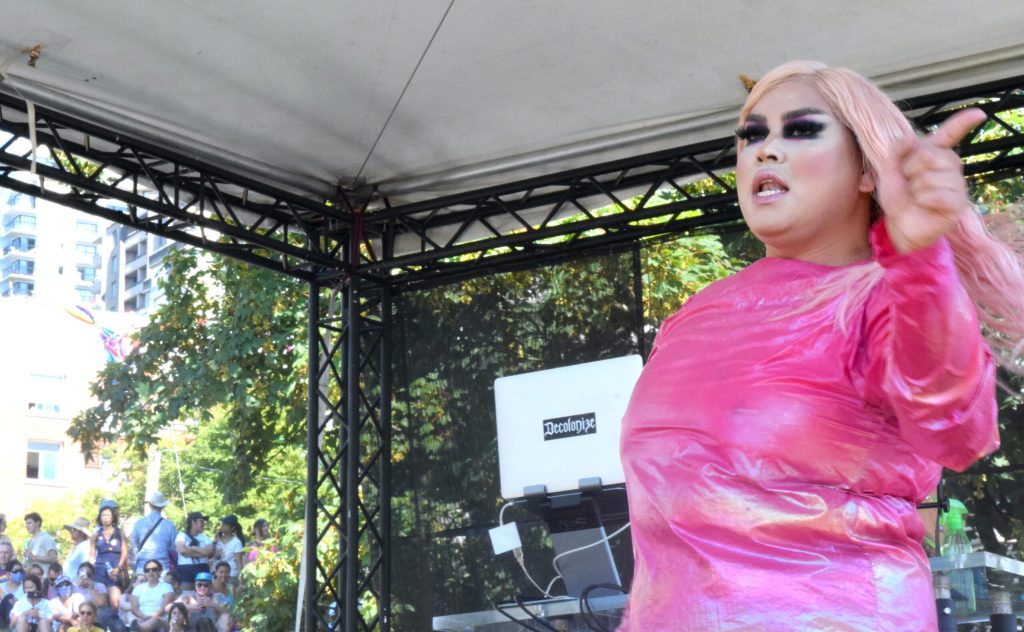
Hotlatch was co-created by cousins Khelsilem and Paisley “Eva” Nahanee from the Sḵwx̱wú7mesh Úxwumixw (Squamish Nation). They’ve been working since 2019 to promote Two-Spirit and Indigiqueer artists and to create space for the communities they attract.
“Beyond it just being an Indigiqueer and Two-Spirit event, for the main stage of Vancouver Pride being programmed by two people from a host nation has this added layer of it that is so special,” Nahanee said.
“I’m just really humbled and honoured to be able to be a part of it.”
Khelsilem emceed the event, and used the platform to draw attention to trans rights and the radical origins of the 2SLGBTQIA+ movement. At one point, they led the crowd in a callback chant, yelling “Pride started as a,” and the crowd yelled back “protest.”
Jayme Andrews, who performs as King Fisher, a drag performer of the Ktunaxa Nation, noted that it’s important for everyone to seek and support community events that feature Two-Spirit and Indigiqueer artists.
“It’s hard to survive as a minority group, and so I think that it’s important for people to continue to look for things like this,” they said.
“People can make showing up for communities the destination.”
Orene Askew, also known as DJ O Show, who is Afro-Indigenous and from Sḵwx̱wú7mesh Úxwumixw, said she is proud to see fellow members of her nation succeeding.
“I’m so proud of them for what they’re doing in the community, and they’re bringing us all along for the journey,” she said, adding that the Vancouver Pride is on the “right path” of inclusivity and still has more work ahead.
The main stage had a few hundred spectators, with the audience tipping drag performers, dancing, singing along, and cheering on the dancers.
Drag artist Jaylene Tyme gave a captivating performance, sharing her voice through song. Jaylene is a Plains Cree, Saulteaux, and Métis trans and Two-Spirit performer and survivor of the 60s Scoop.
“I’ve been doing drag for 30 years as a little child in my mirror before knowing what it was,” she said. Then, in 1991, while at an underground gay bar, she encountered the drag community. “[I] realized ‘that’s me,’” she said.
“I’m feeling great here and I’m supposed to be here. I get to connect with relatives who are doing the same thing: Showing up.”
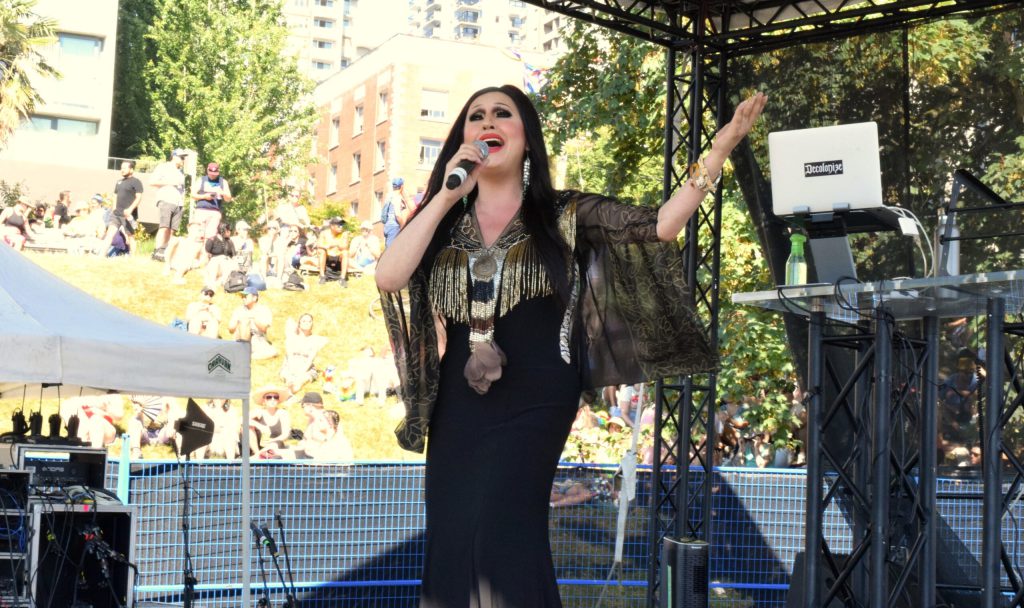
Creating Hotlatch
Hotlatch launched in 2019 because of the need to diversify “Vancouver’s” queer dance party scene. During the pandemic, Hotlatch grew quietly with virtual events before returning to in-person events in late 2021.
“It’s just grown, as you can see, super rapidly because now we get to do the main stage at pride,” says Nahanee.
The two cousins, Khelsilem and Nahanee, drew inspiration from events such as Rice Cake, a local event dedicated to supporting queer Asian artists. Nahanee says she was thrilled by how much joy it brought to the community, and how many queer Asian artists were finally given the stage.
Hotlatch has been successful at shining a light on both emerging and established Indigenous performers. Artists who’ve performed at Hotlatch are now getting more opportunities in other performance spaces, Nahanee said.
“Every time we’re booking newer drag performers or newer Indigenous queer DJs … other event producers see them and just see how amazingly talented they are,” Nahanee said.
The name ‘Hotlatch’ is a play on the word Potlatch, a ceremony of Indigenous people coming together for celebration, she said.
“That’s exactly what we’re doing with Hotlatch, the coming together of Indigenous queer people celebrating ourselves and making new community.”
Author
Latest Stories
-
‘Bring her home’: How Buffalo Woman was identified as Ashlee Shingoose
The Anishininew mother as been missing since 2022 — now, her family is one step closer to bringing her home as the Province of Manitoba vows to search for her
-
Land defenders who opposed CGL pipeline avoid jail time as judge acknowledges ‘legacy of colonization’
B.C. Supreme Court sentencing closes a chapter in years-long conflict in Wet’suwet’en territories that led to arrests
-
Samuel Bird’s remains found outside ‘Edmonton,’ man charged with murder
Officers say Bryan Farrell, 38, has been charged with second-degree murder and interfering with a body in relation to the teen’s death



